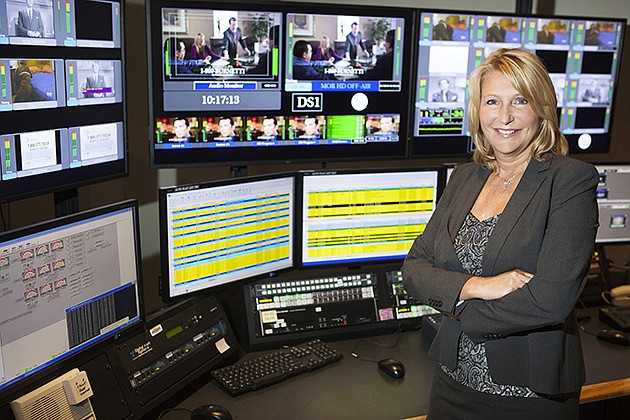- November 24, 2024
-
-
Loading

Loading

A study a few years ago by Radio Television Digital News Association and Hofstra University revealed just 16% of television stations have women in charge.
On the Gulf Coast, the statistics are slightly higher -- six of 16 stations, or 38%, have women leaders. The latest woman to join those ranks is Pamela Barber, named general manager of WMOR in Tampa in May.
Barber has been in the industry for 30 years, both in Tampa and Miami. She joined WMOR, a Hearst Television station, nearly a decade ago, and she's worked closely with GM Kenneth Lucas, who recently announced his retirement.
Unlike most television channels in the market, WMOR is independent. It relies primarily on finding the right syndicated programs that will draw in viewers, and advertisers ready to spend to reach those viewers. Although it competes heavily with Media General's WTTA, Barber and her team have found success with programming.
Comedy hits like “Big Bang Theory” and “Modern Family” dominate its dinnertime schedule, with dramas like “Law & Order: Special Victims Unit” and talk shows like “Jerry Springer” helping to fill out the rest of the schedule.
Barber's career began at WTOG, now an affiliate of The CW, in 1983. She was named general sales manager of WMOR in 2006. Barber recently spoke with the Business Observer about her career and how to keep employees motivated. Here are excerpts of the conversation.
Good guessing: While WFLA might depend on NBC, or WWSB looks to ABC for its programming, Barber and WMOR are on their own. And executives must predict hits before they're hits. “You're buying these shows so far out, and many times you don't even know what the ratings are going to be like in five or six years,” she says. “You hope you find a 'Modern Family' or a 'Big Bang Theory,' but you don't always know until after you get it.”
A little help: “We work closely with Hearst, a company that has been in syndication and programming stations for many years,” Barber says. “It's not just guessing. There is a strong thought process that goes into each and every show. We have to be able to look at numbers, and make projections based on those numbers.”
Changing face: One challenge is TV is changing rapidly. For example, standalone episodes are being replaced with multi-episode story arcs — something that doesn't always translate well to syndication. “We can handle that, because it will create a lot more appointment viewing,” Barber says. “We give them a tried and true way to binge, where you can catch up on a daily basis without having to wait a week or even months.”
Get the word out: There are not just a lot of channels for viewers to choose from these days, but many other programming distribution avenues as well, such as Hulu or Netflix. Innovative promotion strategies, then, become a must for stations like WMOR. “We're always looking at new ways we can promote ourselves, especially to millennials,” Barber says. “You'll see us on billboards, we'll buy cable time, but we also show up at a lot of events, like Gasparilla.”
Original approach:
Actual television production is not a regular sight at WMOR. But the station has seized some opportunities when possible. One example was when the Tampa Bay Buccaneers played the Cincinnati Bengals in preseason. “We have an hour-long pre-game show that we've brought in a popular sports broadcaster Al Keck to host,” says Barber.
Keep talent: WMOR's turnover is driven primarily by retirement, not people leaving for other gigs in the industry. “We've worked for a long time to make this a destination station, a place where people will want to come to work,” Barber says. “It all starts at the corporate level. Hearst really cares about its people, and everyone here knows that. It creates a lot of longevity, and makes it really easy for us to hire the people we want.”
Strong manager: That close relationship with employees trickles down to the station level as well, and into Barber's leadership. “I just know I need to treat everybody fairly,” she says. “If you create a work environment based on honesty and strong ethics, you'll find people believing in what you do, and working hard to make it all happen.”